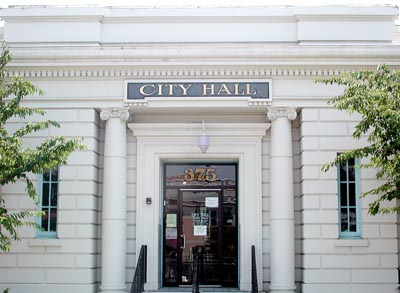The California state Senate narrowly agreed Thursday to make
sweeping changes to California’s correctional system, but not
before an acrimonious debate over whether the plan would release
dangerous criminals from prison ahead of schedule.
By Mike Zapler, McClatchy Newspaper Service
SACRAMENTO
The California state Senate narrowly agreed Thursday to make sweeping changes to California’s correctional system, but not before an acrimonious debate over whether the plan would release dangerous criminals from prison ahead of schedule.
Republicans called it the most significant public safety vote in California in decades and warned Democrats would regret it the first time an inmate released from prison before his sentence was up committed a violent crime.
“It only takes one. Who will be the victim of that one?” said Sen. Tony Strickland, R-Thousand Oaks. “It’ll all be on the people who voted aye.”
The legislation aims to save about $1.2 billion from the corrections budget, a hole legislators left for later when they approved the state budget last month.
Democrats responded angrily, accusing Republicans of preying on public fears and charging the GOP’s lock-em-up mentality hasn’t stemmed crime.
Sen. Gloria Romero, D-Los Angeles, recounted being mugged at gunpoint in the mid-1990’s as her 9-year-old daughter watched. “Don’t tell me when I stand up for reforms in our prison system that I’m soft on crime,” she said.
The proposal, which is backed by Gov. Arnold Schwarzenegger but faced rough sledding Thursday in the Assembly, would allow certain lower-level inmates to serve the last 12 months of their sentences on house arrest, where they would be monitored electronically. The same would apply to elderly and infirm inmates regardless of how long they have left to serve.
Coming against a backdrop of a federal court order to slash the state’s prison population, the plan would reduce the number of inmates by 27,000 the first year, and another 10,000 the following year. The $1.2 billion in proposed prison cuts are part of the broader array of spending reductions to schools, health programs and parks that lawmakers approved last month to plug a $24 billion deficit.
The proposal was approved on a 21-19 vote, with four Democrats and all Republicans in opposition. A vote was expected to follow Thursday afternoon in the Assembly, but after an hours-long delay with no action, the measure’s prospects in that chamber were uncertain.
Aside from allowing about 6,300 inmates to serve out their sentences house arrest, the legislation aims to slice the number of parolees returned to prison for technical violations, such as missing a meeting with a parole officer. Instead, about 5,300 parole violators would be eligible for GPS monitoring.
The plan also would reclassify property crimes such as petty theft, writing bad checks and receiving stolen property as misdemeanors punishable by time in county jails instead of state prisons. Currently local authorities have discretion to decide whether to treat those crimes as felonies or misdemeanors. (Those types of crimes would automatically be felonies if more than $2,500 was taken; currently the threshold is $400.) The change would reduce the prison population by an estimated 5,600 inmates.
Up to 8,500 non-violent inmates in the country illegally would be sent to federal authorities to be deported. And the plan would give inmates who participate in rehabilitation programs credit for time served, resulting in a 1,600-inmate reduction.
Earlier this month, a three-judge federal plan ordered the state to draft a plan to reduce the inmate population by about 40,000, out of a total 167,000, within two years to relieve severe overcrowding. Several Democrats said the plan they proposed would be far preferable to whatever the judges would foist upon the prison system if lawmakers fail to act.
But Republicans were not swayed, saying the real problem is a lack of prison space and too much spending on bureaucracy.
They also decried a new sentencing commission the legislation would create. The panel’s 13 members, most of whom would be appointed by the governor, would issue sentencing guidelines by July 2012. The recommendations would go into effect the following year unless lawmakers vote to block them.
It remained unclear Thursday evening whether the reform plan had enough votes in the Assembly. Members in that body can serve only six years and frequently are looking ahead to run for other offices. Even many Democrats could find it difficult to vote for the prison reforms, knowing they could be tagged as soft on crime by a future opponent.
Schwarzenegger urged lawmakers to be courageous and vote for the plan, which is opposed by many law enforcement agencies. Other criminal justice experts have endorsed many of the plan’s reforms.
“It’s always … politically risky to talk about these kinds of issues,” the governor said. “But we need to do what is right for the state.”









